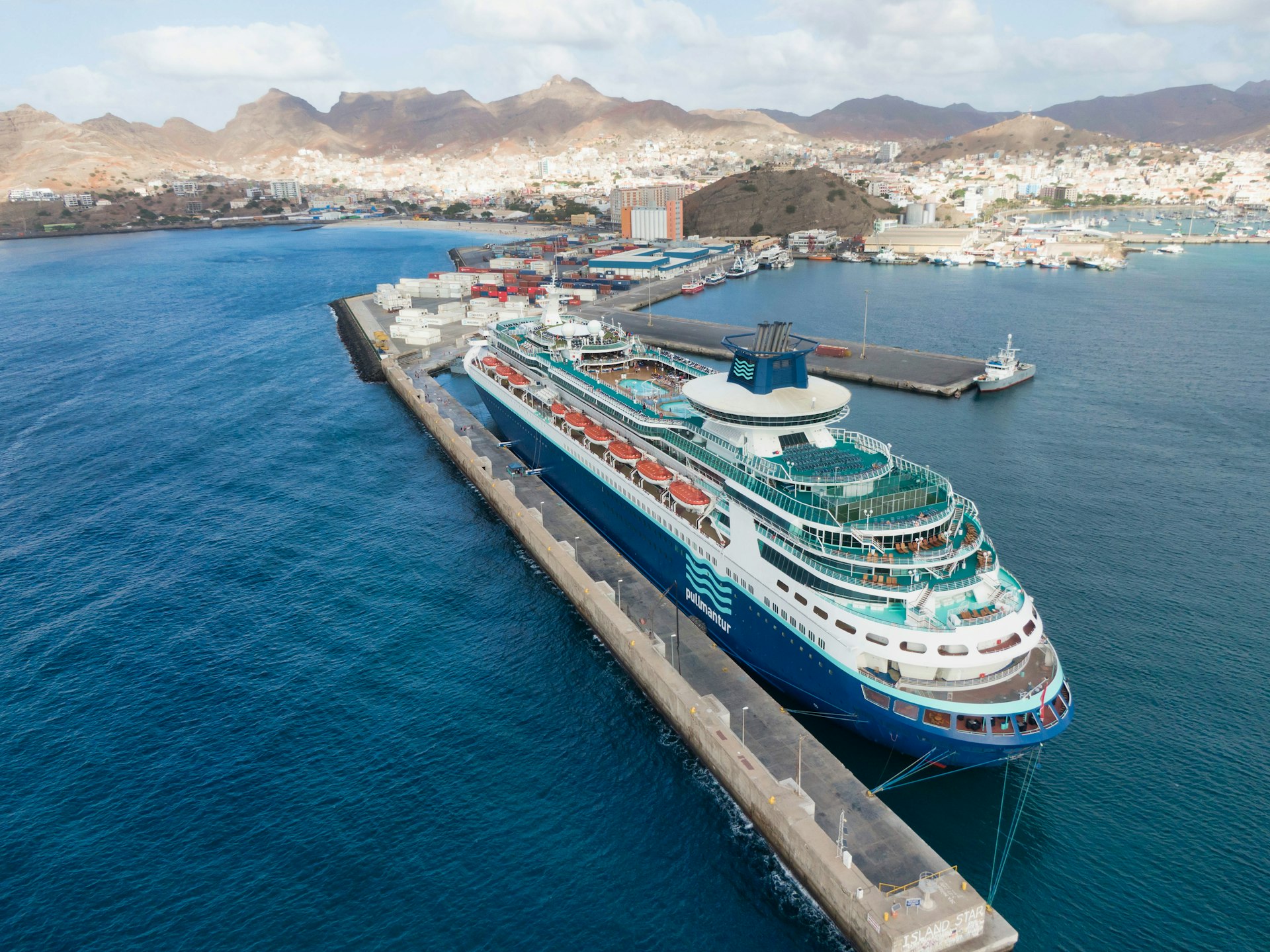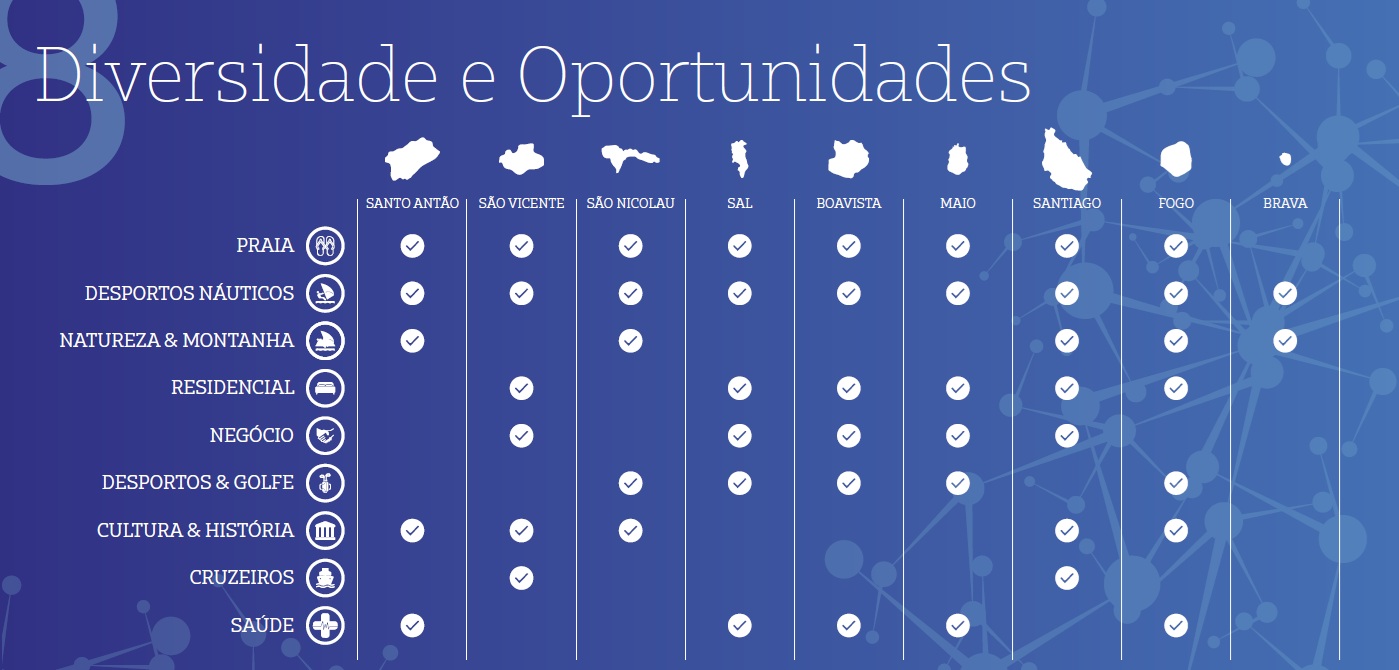Cape Verde: The Strategic Logistics Hub Connecting Four Continents
Cape Verde's geographical position is one of its greatest strategic assets, establishing the archipelago as a logistics hub and a crucial connection point between four continents: Africa, Europe, America, and Asia. Moreover, this privileged location has a direct impact on tourism, making the country an accessible and attractive destination for visitors from all over the world.
A Global Meeting Point
Located in the Atlantic Ocean, about 570 km off the coast of West Africa, Cape Verde plays a fundamental role in trade routes and transport between continents. Historically, it was a key point for European navigation during the Age of Discovery and, today, it continues to be an important link in maritime and air trade.
The Impact of Geographical Position on Tourism
Cape Verde's strategic location also has a significant impact on the tourism sector, driving local economic growth and expanding development opportunities.
Easy Access to Multiple Markets
Cape Verde is situated in the middle of the Atlantic, about 3 to 6 hours by plane from major tourism markets such as Europe, North America, South America, and Africa. This factor boosts the growth of international tourism, particularly from European countries like Portugal, Spain, France, Germany, and Italy, which represent a significant share of visitors.
An Ideal Destination for Sun and Beach Tourism
Cape Verde’s tropical location guarantees warm and sunny weather all year round, with average temperatures ranging between 24°C and 30°C. This makes the archipelago an ideal choice for tourists seeking sun and beach holidays, especially during the European winter.

Strategic Air Connections
Thanks to its location, Cape Verde has become an important stopover point for transatlantic flights. Amílcar Cabral International Airport (Sal) and Nelson Mandela Airport (Praia) serve as hubs for airlines connecting Europe, South America, and West Africa. This facilitates the arrival of tourists from different regions and increases the country’s connectivity.
Cruise Tourism
Cape Verde’s location in the Atlantic makes it a key stop for international cruises. Ports such as Porto Grande in Mindelo receive cruise ships bringing thousands of tourists annually, boosting the local economy, especially in the services and commerce sectors.
Porto Grande in Mindelo

Business Opportunities
The country’s political and economic stability, combined with its privileged geographical position, makes Cape Verde an attractive destination for investment in the transport, logistics, and tourism sectors. Global companies can leverage the archipelago as an efficient and strategic distribution point for African and Atlantic markets.

Additionally, proximity to Africa and Europe supports the development of sectors such as:
- Nature and Adventure Tourism: Hiking, ecotourism, and water sports are becoming popular in mountainous islands such as Santo Antão and Fogo.
- Cultural and Historical Tourism: Cape Verde’s strategic location has made it a crucial point in the history of colonization and the African diaspora, attracting tourists interested in the country’s culture, music, and history.
- Health and Wellness Tourism: With its dry climate and thermal waters, some islands can position themselves as ideal destinations for wellness tourism.
How Does Cape Verde Connect the Four Continents?
- Africa: Cape Verde is part of Africa and maintains strong cultural, historical, and economic ties with countries on the continent, particularly in West Africa. Additionally, it serves as an air and maritime connection point between the region and other parts of the world.
- Europe: Due to its proximity and historical ties with Portugal, Cape Verde has frequent flights to several European cities, including Lisbon, Paris, Madrid, Amsterdam, and Milan. Many European tourists visit the country for its beaches, tropical climate, and vibrant culture.
- America: Cape Verde has direct connections with Brazil and the United States, both by air and sea. Historically, many Cape Verdeans emigrated to the U.S., particularly to states such as Massachusetts and Rhode Island, strengthening ties between the regions.
- Asia: Although there are not many direct flights, Cape Verde serves as an indirect bridge to Asia through air connections in Europe and Africa. Additionally, the country is part of global trade routes involving Asian markets, especially with the rise of international trade and Chinese investments in Africa.
Cape Verde as a Global Hub
The archipelago’s location in the middle of the Atlantic makes it a strategic point for logistics, tourism, and trade. The country’s ports and airports play a fundamental role in the movement of people and goods between continents.
Cape Verde’s geography is more than just a natural advantage; it is a driver of development and a vital bridge to the world. With proper investment and a well-defined strategy, the archipelago can further solidify itself as a global hub, stimulating the economy and attracting an increasing number of tourists and investors.


